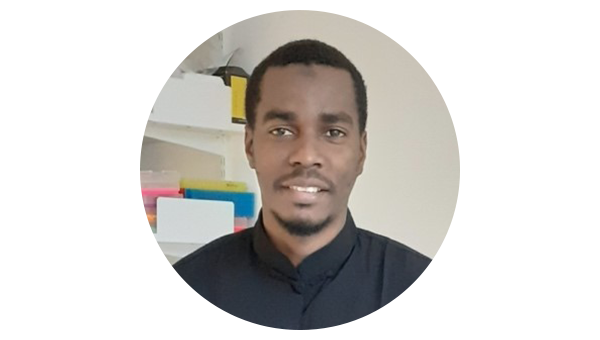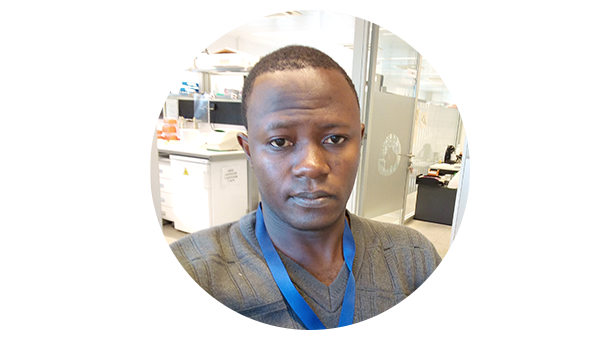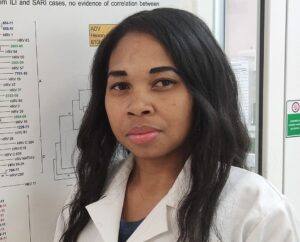On Friday, June 28th, the Pasteur Network successfully held its second Africa Regional Meeting, bringing together leading experts from member institutes across the continent. This pivotal gathering underscored the importance of collaboration and sharing expertise to tackle the pressing health challenges faced by the African region, focusing on three main thematic areas.
The meeting opened with remarks from Amadou Alpha Sall, President of the Pasteur Network, and Board member of the Africa region, who emphasized the network’s mission and vision. Thematic experts led insightful discussions across various sessions :
- Language Models in Biology: Led by Xavier Berthet from the Institut Pasteur de Dakar, this session explored the application of large language models in biological research, highlighting innovative methodologies and their potential impact on future studies. The way to use collected data and more specifically how to standardize them to build models was discussed.
- Climate Change and Infectious Diseases: Emmanuel Nakouné from the Institut Pasteur de Bangui discussed the establishment of observatories to monitor the health impacts of climate change, emphasizing how climate factors contribute to the spread of infectious diseases and the need for adaptive strategies. He highlighted the collective efforts of various members in developing a joint project.
- Antimicrobial Resistance: Sara Eyangoh from the Centre Pasteur in Cameroun addressed the growing issue of antimicrobial resistance (AMR) by presenting regional research findings and discussing public health behavior change programs to combat AMR effectively. The representatives underscored the regional specificities in the fight against AMR.
The Pasteur Network Africa Regional Meeting organized by Sandrine Kyane, Strategic Development Officer for the Africa Region, marked a significant milestone in enhancing regional collaboration, addressing public health challenges, and advancing the collective mission of improving global health.
The discussions and outcomes of this meeting will undoubtedly contribute to a stronger, more resilient network poised to tackle future health crises with unparalleled expertise and unity. A key focus of the meeting was on strengthening partnerships and leveraging the unique strengths of the network’s member institutes.
Equitable partnership remains a core value, guiding discussions and prioritizing collective interests, ensuring that all member institutes have access to resources and opportunities for collaboration.
Members in Africa region :
Centre Pasteur in Cameroon, Institut Pasteur de Bangui, CERMES Niger, Institut Pasteur de Côte d’Ivoire, Institut Pasteur de Dakar, Institut Pasteur de Guinée, Institut Pasteur de Madagascar
More information:
https://pasteur-network.org/en/members/
The Centre for Africa’s Resilience to Epidemics (CARE) was inaugurated on January 19th, 2024, by Institut Pasteur de Dakar, a Pasteur Network member, in the presence of various dignitaries and partners. The opening of this center also marked the beginning of Institut Pasteur de Dakar’s centenary celebrations in 2024.
CARE’s objectives are
- to train the next generation of leaders, decision-makers and actors involved on epidemic fronts
- Promote disease intelligence by collecting, storing and analyzing massive epidemiological data
- Translate epidemiological research into social value by fostering a culture of innovation and entrepreneurship
CARE is also an instrument in the battle against epidemics, consistent with the Institut Pasteur de Dakar’s strategic objective on epidemic preparation, which it shares with the other Pasteur Network members.
On this occasion, the Africa CDC formally certified Institut Pasteur de Dakar as a Center of Excellence in Biosafety and Biosecurity for the West African Region (RCoeEBBS).
Review of the event




- To find out more, read the statement from Institut Pasteur in Dakar.
The Pasteur Network aims to promote collaboration and knowledge sharing by sponsoring yearly high-level training modules . Three recent courses hosted by members of the Pasteur Network addressed some of its main action pillars : epidemic intelligence and preparedness, research, development and innovation, multi-disciplinary knowledge communities and equitable collaboration.
A first course focused on “Biology of emerging and Neglected Viral Infections in Latin America” took place from April 19th to 28th , 2023 at the Institut Pasteur de Montevideo.
The course, organised by Nicolas Sarute (Institut Pasteur de Montevideo), Nolwenn Jouvenet (Institut Pasteur, Paris) and Sandra Cordo (UBA, AUGM, Argentina), brought together researchers and healthcare professionals from all over Latin America. The main objective of the course was to foster a multidisciplinary exchange on key aspects of the biology of neglected and emerging viruses, with a focus on pathogens with an impact on public health. Topics covered included basic virus research, epidemiology, surveillance, and prevention and control strategies.
This course will bear the name of Professor Otto Pritsch, a recently deceased researcher who played a fundamental role in the consolidation of the agreement signed between the French Cooperation for Latin America, the Association of Universities of the Montevideo Group (AUGM), the Institut Pasteur (Paris) and the Institut Pasteur de Montevideo.
Consult the programme on the Institut Pasteur de Montevideo website
A second course within the context of the SARA (Surveillance of antibiotic resistance in Africa) project, co-financed with FSPi funds of the French Ministry of Europe and Foreign Affairs, was held at the Institut Pasteur de Dakar from May 22nd to 26th, 2023. It was co-coordinated by the group of Sylvain Brisse (Institut Pasteur) and Yakhya Diye (Institut Pasteur de Dakar). This intensive course brought together 21 participants from 9 different African countries. The course focused on the sequencing and bioinformatics analysis of bacterial genomes. It also enabled participants to strengthen their collaborative network and share best practices in antibiotic resistance surveillance.
To find out more about the SARA course: read the article published on Pasteur.fr
Finally, the “Immersion in Innovation and Technology Transfer in Biological Sciences and Public Health” course was held from June 26th to 29th, 2023at the Hellenic Pasteur Institute. Over four days, experts spoke about the importance of technology transfer and innovation in the development and manufacture of innovative medical products.
Consult the programme on the Hellenic Pasteur Institute website
By funding these high-level courses and making them accessible to a wide range of participants, the Pasteur Network aims to foster collective action and knowledge sharing, in emerging infectious diseases, anti-microbial resistance and the promotion of scientific innovation.
More information :
List of the courses supported by the Pasteur Network
Pasteur Network contact : Kathleen VICTOIR kathleen.victoir@pasteur.fr
Photo: SARA course in May 2023 at the Institut Pasteur de Dakar. Copyright: Sylvain Brisse
Appel d’offres projet maladies infectieuses
L’axe 1 maladies infectieuses émergentes (un des trois axes stratégiques de l’Institut Pasteur), en partenariat avec la Direction Internationale, et avec le soutien de la Direction de la Coopération Internationale de la Principauté de Monaco, a le plaisir de proposer un financement de 15 000 euros pour un projet émanant d’un des instituts africains du Pasteur Network et portant sur la lutte contre les maladies infectieuses.
Tout projet sur la thématique des maladies infectieuses est recevable, mais les projets avec une composante de santé publique forte seront prioritaires.
Procédure d’application
- Completez le formulaire d’application au plus tard le 30 juin 2023.
- Les propositions seront évaluées par un comité scientifique et le projet sélectionné sera annoncé à la mi-juillet 2023.
The Department of International Cooperation of the Principality of Monaco in partnership with the Institut Pasteur‘s International Affairs Department, is pleased to announce the offer 15,000 euros to fund a Pasteur Network project to be proposed by one member from the Network’s African Region.
As “Emerging Infectious Diseases” is one of the three strategic scientific areas of the Institut Pasteur, the funding will support a project related to the fight against infectious diseases. Any project on this theme is admissible. However, projects with a strong public health component will be given priority.
Application process
- Complete the application form, in French and return it before June 30, 2023.
- The proposals will be evaluated by a scientific committee and the selected project will be announced in mid-July 2023.
On January 19th, 2022, the Institut Pasteur de Dakar, member of the Pasteur Network and the Coalition for Epidemic Preparedness Innovations (CEPI) and announced a 10-year partnership in which CEPI will invest up to $50 million. This collaboration aims to advance equitable access to vaccines in Africa and contribute to the African Union’s goal of increasing African manufacturers’ share of vaccine supply to the continent to 60% by 2040.
CEPI’s investment will complement that of other major funders for the project MADIBA, including European Union, the European Investment Bank (EIB), the AFD – Agence Française de Développement, the Islamic Development Bank (IsDB), the IFC – International Finance Corporation, the U.S. International Development Finance Corporation, the German Government, and the Government of Senegal.
For more information:
CEPI’s news: https://cepi.net/news_cepi/cepi-and-institut-pasteur-de-dakar-announce-10-year-partnership-to-boost-manufacturing-of-affordable-vaccines-for-the-global-south/
Institut Pasteur de Dakar’s announcement: https://www.linkedin.com/feed/update/urn:li:activity:7021806481087811584/?updateEntityUrn=urn%3Ali%3Afs_feedUpdate%3A%28V2%2Curn%3Ali%3Aactivity%3A7021806481087811584%29
Due to globalization and the spread of vectors such as mosquitoes, dengue disease is an increasing burden on public health across the world. Rapid detection of vector species, and prevention of their establishment can be achieved by tracking vectors. Scientists from the Pasteur Network, based at the Institut Pasteur de Nouvelle-Calédonie, the Institut Pasteur du Camboge, the Institut Pasteur du Laos and the Institut Pasteur de Madagascar, published an article in Plos One showing MALDI-TOF MS as a promising tool that could be used for an international surveillance of mosquito vectors of arbovirus.
A public health burden
Dengue virus is a pathogen transmitted to humans by vector mosquitoes. It causes mostly mild illness or flu-like syndromes. However, repeated infections are known to cause severe and potentially fatal clinical forms, called severe dengue.
Due to globalization, the geographical distribution of mosquitoes known to transmit the dengue virus is increasing, particularly in non-endemic regions. Dengue global incidence has increased eightfold in the last decades with an estimation of 390 million infected individuals per year across the world.[1] The dispersal risk highlights the need to improve vectors surveillance, ensuring rapid detection of introduced vector species and prevention of their establishment in new areas. The surveillance relies on accurate species identification of the vectors. Aedes aegypti and Aedes albopictus, as known as the tiger mosquito, which have a worldwide distribution, are the well-known vectors of dengue virus. However, in the Pacific region, at least 9 other species belonging to the Scutellaris Group mosquitoes are present and are confirmed or potential vectors of dengue virus.
MALDI-TOF MS for a global surveillance of mosquitoes
Mosquitoes of the Scutellaris Group are morphologically similar and pre-existing DNA sequence information is often unavailable. Therefore, scientists from the Pasteur Network, assessed the use of Matrix-Assisted Laser Desorption Ionization Time-Of-Flight Mass Spectrometry (MALDI-TOF MS) in identifying these dengue virus vector species. MALDI-TOF MS is a method that generates protein spectra specific for each species.
Field-mosquitoes belonging to 8 species[2] from 6 countries in the Pacific, Asian and Madagascar, were included in this study carried out by the Institut Pasteur de Nouvelle-Calédonie, in collaboration with the Institut Pasteur du Cambodge, Institut Pasteur du Laos and the Institut Pasteur de Madagascar. Analysis provided evidence that a MALDI-TOF database created using mosquitoes from the Pacific region allowed suitable identification from the other regions. This technic was as efficient as the DNA sequencing method in identifying mosquito species. Indeed, for the most cases, an exact species identification was obtained for all individual mosquitoes even for morphologically and phylogenetically closely related species. Ultimately, these findings highlight that the MALDI-TOF MS is a promising tool that could be used for a global comprehensive arbovirus vectors surveillance.
For more information:
MALDI-TOF MS: An effective tool for a global surveillance of dengue vector species
Plos One, October 2022.
Antsa Rakotonirina*, Morgane Pol, Fara Nantenaina Raharimalala, Valentine Ballan, Malia Kainiu, Sébastien Boyer, Sosiasi Kilama, Sébastien Marcombe, Sylvie Russet, Emilie Barsac, Rama Vineshwaran, Malia Kaleméli Selemago, Vincent Jessop, Geneviève Robic, Romain Girod, Paul T. Brey, Julien Colot, Myrielle Dupont-Rouzeyrol, Vincent Richard, Nicolas Pocquet
*Corresponding author.
DOI: https://doi.org/10.1371/journal.pone.0276488
[1] https://www.who.int/news-room/fact-sheets/detail/dengue-and-severe-dengue
[2] Ae. aegypti, Ae. albopictus, Ae. polynesiensis, Ae. scutellaris, Ae. pseudoscutellaris, Ae. malayensis, Ae. futunae and Culex quinquefasciatus
The Institut Pasteur de Madagascar in collaboration with the Institut Pasteur de Tunis and the Institut Pasteur, in Paris, all three members of the Pasteur Network, are organizing a course entitled “Les dimensions sociales des épidémies”. During 5 days, from April 17th to 21th, 2023, at the Institut Pasteur de Madagascar, the 25 participants will be able to strengthen their knowledge and capacities in Human and Social Sciences (HSS). HSS researchers of the Pasteur Network in Africa or involved in the Afroscreen project who speak French and are interested can apply until January 15th, 2023.
This course, carried out with the support of the Sonar Global and Afroscreen projects, is part of the capacity building process in Human and Social Sciences (HSS) at the level of the Pasteur Network and more broadly of African research and health institutes. 25 participants will be selected among the candidates who will have applied before January 15th, 2023 by filling the dedicated Google Form.
The courses will be given in person during 5 days by trainers from the Institute of Research in Health Sciences of Burkina Faso, the Social Sciences Pole of the Regional Center of Research and Training in Clinical Management of Fann in Dakar, Senegal, the Center of Research and Training in Infectiology of Guinea, the Higher Institute of Human Sciences of Tunis, the Institut Pasteur in Paris and the Institut Pasteur de Madagascar.
Applicant Profiles:
Researchers in SHS anthropologists, sociologists, specialists in education sciences, human geography, historians and data scientists applied to health who speak French.
From:
Researchers from Pasteur Network members in Africa or researchers involved in the Afroscreen project (IRD, ANRS|MIE networks).
Requirements:
- Master’s degree or PhD in the scientific disciplines listed above
- Relevant professional experience in conducting or contributing to HSS research in an epidemic context
- Good knowledge of data collection (primary and secondary) and analysis methods specific to HSS
For more information:
Application area: https://forms.gle/sNcAVwcVycHrjLXM9
Article dedicated to the Institut Pasteur de Madagascar (in French): https://www.pasteur.mg/offres/appel-a-candidature-cours-du-pasteur-network-les-dimensions-sociales-des-epidemies-du-17-au-21-avril-2023-lieu-institut-pasteur-de-madagascar/
On December 09th, 2022 was held the 2021-2022 Institut Pasteur PhD Graduation Ceremony. Three graduates represented Pasteur Network: Dr Habib for the Institut Pasteur de Madagascar, Dr Lyu for the HKU-Pasteur Research Pole and Dr Modiyinji for the Pasteur Center in Cameroon. After the introductory speech of the guest of honor, Prof. Ugur Sahin, Professor of Translational Oncology and Immunology at the University of Mainz and CEO of BioNTech, all had a few minutes to present their background.
Dr. Azimdine Habib

“Always have a goal in life and give yourself all the means to achieve it. Never be afraid of failure but learn from it to move forward”
Dr. Azimdine Habib is originally from the Comoros Islands where he obtained his bachelor’s degree in Life Sciences in 2012. His master’s degree in Fundamental and Applied Biochemistry, option Biochemistry, Biodiversity and Health has brought him to Madagascar. He joined the Institut Pasteur de Madagascar during his second year in the bilharzia laboratory. In 2016, he was recruited as a laboratory technician in the experimental bacteriology unit. In 2017, he began his PhD under the supervision of Dr. Jean-Marc Collard. His thesis explores the link between the composition of the intestinal microbiota and intestinal parasites, especially in children with malnutrition. As part of the “My Thesis in 180 seconds” competition, organized by the Institut Pasteur de Madagascar, Azimdine Habib presented his thesis to a non-scientific audience and won first place in the 2nd edition. He then defended his thesis in December 2021. In October 2022, he joined the BIOMICS technology platform of the Institut Pasteur, also a member of the Pasteur Network, as a research engineer where he is interested in next generation sequencing.
Dr. Huibin Lyu
“Practice is the sole criterion for testing truth”

Dr. Huibin Lyu, aka Tomas, has started his research journey at the Guangdong University of Technology in China, investigating the anti-bacterial and anti-tumor functions of Curcumin. This first encounter with research has spurred him to begin his second Master regarding virology and immunology at Guangzhou Medical University. Especially, he focused on cross-reactive monoclonal antibody screening against the influenza A virus. Under a Doctoral Grants Calmette & Yersin scholarship, he joined the HKU-Pasteur Research Pole, member of the Pasteur Network, to carry out his Ph. D. in Prof. Roberto Bruzzone and Dr. Chris Mok’s group. His initial Ph. D. research proposal was a continuation of his master’s degree and focused on the antibody response after the first influenza infection in the newborn and the specialization of the immune system in the mouse model. In response to the Covid-19 pandemic, Dr. Lyu shifted his focus to another virus, SARS-CoV-2, and contributed to a better understanding of the immune response to this virus. In September 2022, he defended his dissertation on the cross-reactions of the immune system to SARS-CoV-2 in humans and mice. Dr. Lyu is now a post-doctoral fellow at the University of Illinois Urbana-Champaign where he is working to identify signatures of human antibodies against different pathogens.
Dr. Abdou Fatawou Modiyinji

“Science has no homeland”
Dr. Abdou Fatawou Modiyinji completed his studies at the Faculty of Sciences of the University of Yaoundé 1 in Cameroon. In 2012, he obtained his bachelor’s degree in Biology of Animal Organisms. He continued with a master’s degree in Parasitology and Ecology which he obtained in 2015. He then carried out a PhD at the Department of Animal Biology and Physiology and the Centre Pasteur du Cameroun, a member of the Pasteur Network. His thesis, the first study of its kind in Cameroon, focused on hepatitis E among human and animal populations in the country. In addition to characterizing the genotypes of the hepatitis E virus in humans, it highlighted a high seroprevalence of the virus in both populations suggesting an interspecies transmission of the hepatitis E virus in Cameroon. Abdou Fatawou Modiyinji, author of several publications during his thesis, defended his thesis in July 2022. He is now studying enteroviruses as a post-doctoral researcher at the Pasteur Center in Cameroon.
During the Pasteur Network Annual Meeting from November 28 to 30, 2022 in Rome, Dr. Norosoa Razanajatovo, from the Institut Pasteur de Madagascar received the Pasteur Network Talent Award 2022[1] issued by the President of the Institut Pasteur, Stewart Cole.
Dr Norosoa Razanajatovo joined the National Influenza Centre (NIC) of the Virology Unit of the Institut Pasteur of Madagascar in 2013 as a research engineer. She received her doctorate with an option of applied biochemistry in medical sciences, which she obtained in 2015. Carried out under the supervision of Dr. Jean-Michel Héraud, her thesis work, which focused on the identification and molecular characterization of respiratory viruses circulating in Madagascar, has helped to implement a better prevention strategy against respiratory diseases. Norosoa Razanajatovo has notably played a role for the implementation of the program to develop national surveillance of influenza in collaboration with the Ministries of Malagasy Public Health and Livestock.
From 2016, she became technical manager and deputy chief of the National Center for Influenza. The same year, she was also appointed WHO technical advisor. Over the years, she has acquired solid experience in the field of surveillance of respiratory viruses through the management of various epidemics such as H1N1 influenza, or more recently, COVID-19. In 2022, she was promoted researcher. She coordinates laboratory surveillance of viral respiratory infections and associated research programs.

“A good surveillance system is important to master an epidemic, but an effective and up -to -date research strategy is the keystone to achieve this.”
She studies the viral causes of acute respiratory infections, the identification of a seasonal characteristics for common respiratory viruses, the development of predictive diagnostic tools and molecular biology of human and zoonotic viruses.
Her latest project focuses on the dynamics of the introduction and dissemination of respiratory viruses relevant for human and animal health for the country and worldwide. In parallel, Dr. Norosoa Razanajatovo is invested in the transmission of her knowledge by the supervision of different students, by holding training workshops for local and regional laboratories and by training the staff of regional institutions in the executive training program in field epidemiology. With regard to her commitment and her career, she received the Pasteur Network Talent Award 2022 at the Annual Meeting on November 28, 2022 in Rome.
For more information:
Article from the Institut Pasteur de Madagascar: https://www.pasteur.mg/dr-norosoa-harline-razanajatovo-laureate-du-prix-pasteur-network-talent-award-2022/
[1] Each year, the Pasteur Network Talent Award recognizes one or two Pasteur Network researchers who are the future leaders of the network.